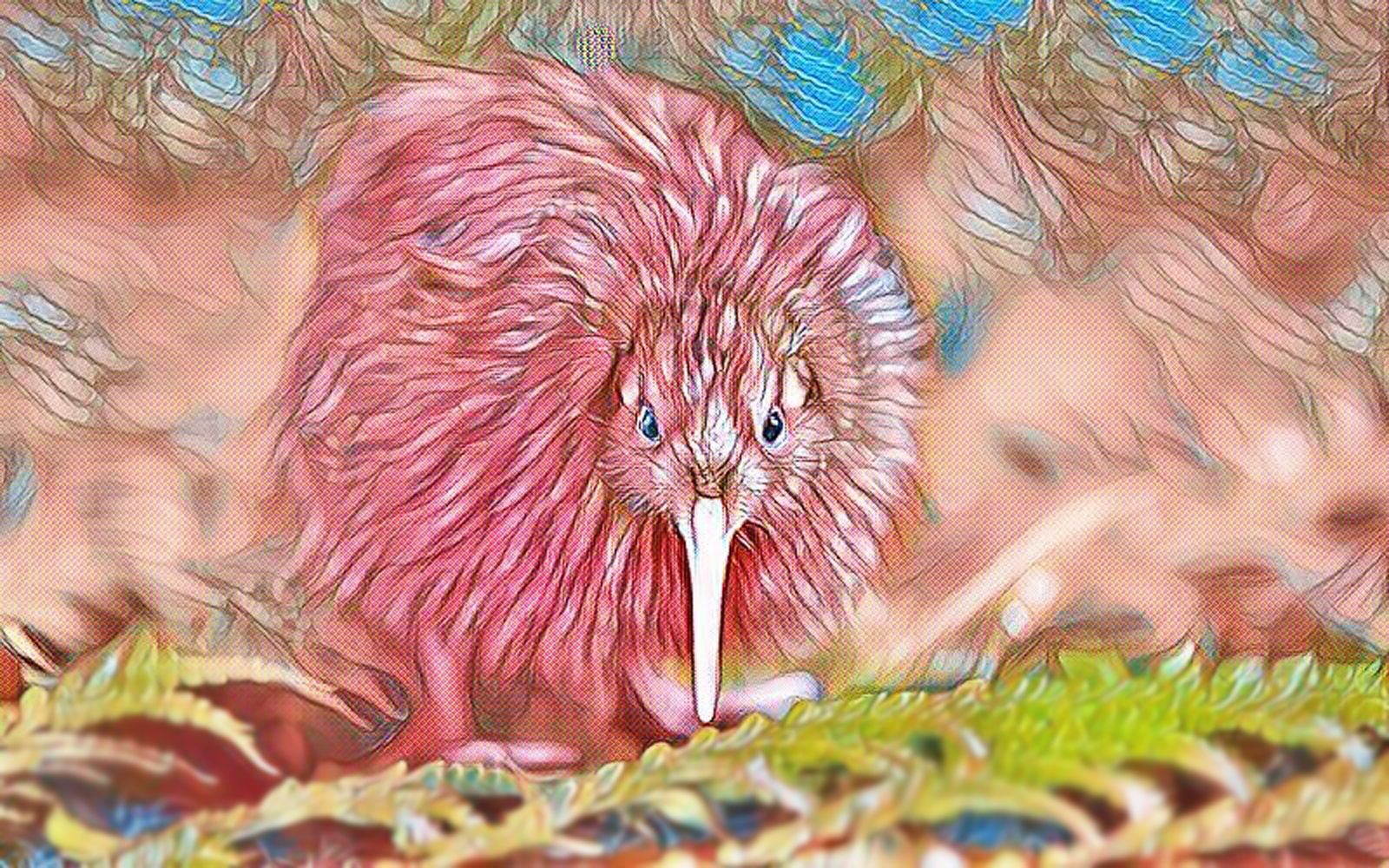The national symbol of New Zealand is the Kiwi bird. They are pictured on the country’s postage stamps. New Zealanders call themselves “Kiwis”. The Kiwi fruit is a major horticultural export from New Zealand. The New Zealand dollar is even nicknamed “the Kiwi.” Come – read the story, written by Alwyn Owen in 1963 and shared here by the Polynesian Cultural Center, of how the sacrifice of this humble kiwi bird saved the forests of Aotearoa, which has become a favorite among children across New Zealand.
One day, as Tānemahuta walked through the forest, he looked up at his children, which were the trees, reaching for the sky. Sadly, they had begun to sicken and die. Insects crawled the length of the trunks, eating away the life of the trees.
Tānemahuta talked to his brother, Tānehokahoka, who called together his children, the birds of the air.
Tāne-mahuta spoke to them.
“Something is eating my children, the trees. I need one of you to come down from the forest roof and live on the floor, so that my children can be saved, and your home can be saved. Who will come?”
Not a single bird spoke.
Tāne-hokahoka turned to his son, Tūī.
“E Tūī, will you come down from the forest roof?”
Tūī looked up at the sun filtering through the leaves of the trees, then down at the forest floor where all was cold and dark. Tūī shuddered.
“Kāo, Tāne-hokahoka, for it is too dark and I am afraid of the dark.”
Tāne-hokahoka turned to Pūkeko.
“Pūkeko, will you come down from the forest roof?”
Pūkeko looked down at the cold, damp earth and also shuddered.
“Kāo, Tāne-hokahoka, for it is too damp and I do not want to get my feet wet.”
All was quiet, and not a bird spoke.
Tāne-hokahoka turned to Pīpīwharauroa.
“Pīpīwharauroa, will you come down from the forest roof?”
Pīpīwharauroa looked up at the trees, then looked around at his own family and children.
“Kāo, Tāne-hokahoka, for I am busy at the moment building my nest.”
All was quiet, and not a bird spoke. Great was the sadness in the heart of Tāne-hokahoka, for he knew, that if one of his children did not come down from the forest roof, his brother would lose his children, and the birds would have no homes.
Tāne-hokahoka turned to the Kiwi bird.
“E Kiwi, will you come down from the forest roof?”
Kiwi looked up at the sunlit trees. He looked around and saw his family. Then Kiwi looked at the cold damp earth. Looking around once more, he turned to Tāne-hokahoka and said, “I will.”
Great was the joy in the hearts of Tāne-hokahoka and Tāne-mahuta, for this little bird was giving them hope. But Tāne-mahuta felt he should warn Kiwi of what would happen.
“E Kiwi, if you do this, you will have to grow thick, strong legs to rip apart the logs on the ground. You will lose your beautiful coloured feathers and wings, and will never be able to return to the forest roof. You will never see the light of day again.”
All was quiet, and not a bird spoke.
“E Kiwi, will you come down from the forest roof?”
Kiwi took one last look at the sun filtering through the trees and said a silent goodbye. Kiwi took one last look at the other birds, their wings and their coloured feathers and said a silent goodbye. Looking around once more, he turned to Tāne-hokahoka and said,
“I will.”
Then Tāne-hokahoka turned to the other birds and said, “E Tūī, because you were too afraid to come down from the forest roof, from now on you will wear the two white feathers at your throat as the mark of a coward.
Pūkeko, because you did not want to get your feet wet, you will live forever in the swamp.
Pīpīwharauroa, because you were too busy building your nest, from now on you will never build another nest again, but will lay your eggs in the nests of other birds.
But you Kiwi, because of your great sacrifice, you will become the most well known and most loved bird of them all.”


It was amazing to hear that the name kiwi appears so much in New Zealand, and the story of kiwi is fascinating. I don’t know why, but I feel emotional after reading this story. Anyway, thanks for sharing it.
Thank you so much for writing and expressing your feelings about the Maori legend of the kiwi. It is so beloved throughout New Zealand, as evidenced by all the ways they use the name “kiwi”.
On this Thanksgiving holiday of 2021, I feel honored that this little bird’s legend found it’s way to me..I have learned much since the summer about the Kiwi Bird..What better way to show thanks today than for his sacrifice??..:)
I will remember your sacrifice when i eat kiwi every time
I recall this lovely story of the Kiwi from my childhood. It still is memorable and touching even after all the years. I have several beautiful photos, paintings of the Kiwi on my walls. I remain in awe of this sweet shy bird of Aotearoa.
I love this myth but i dont like eating kiwi